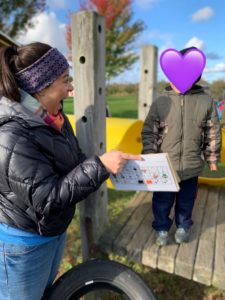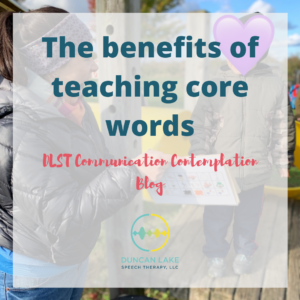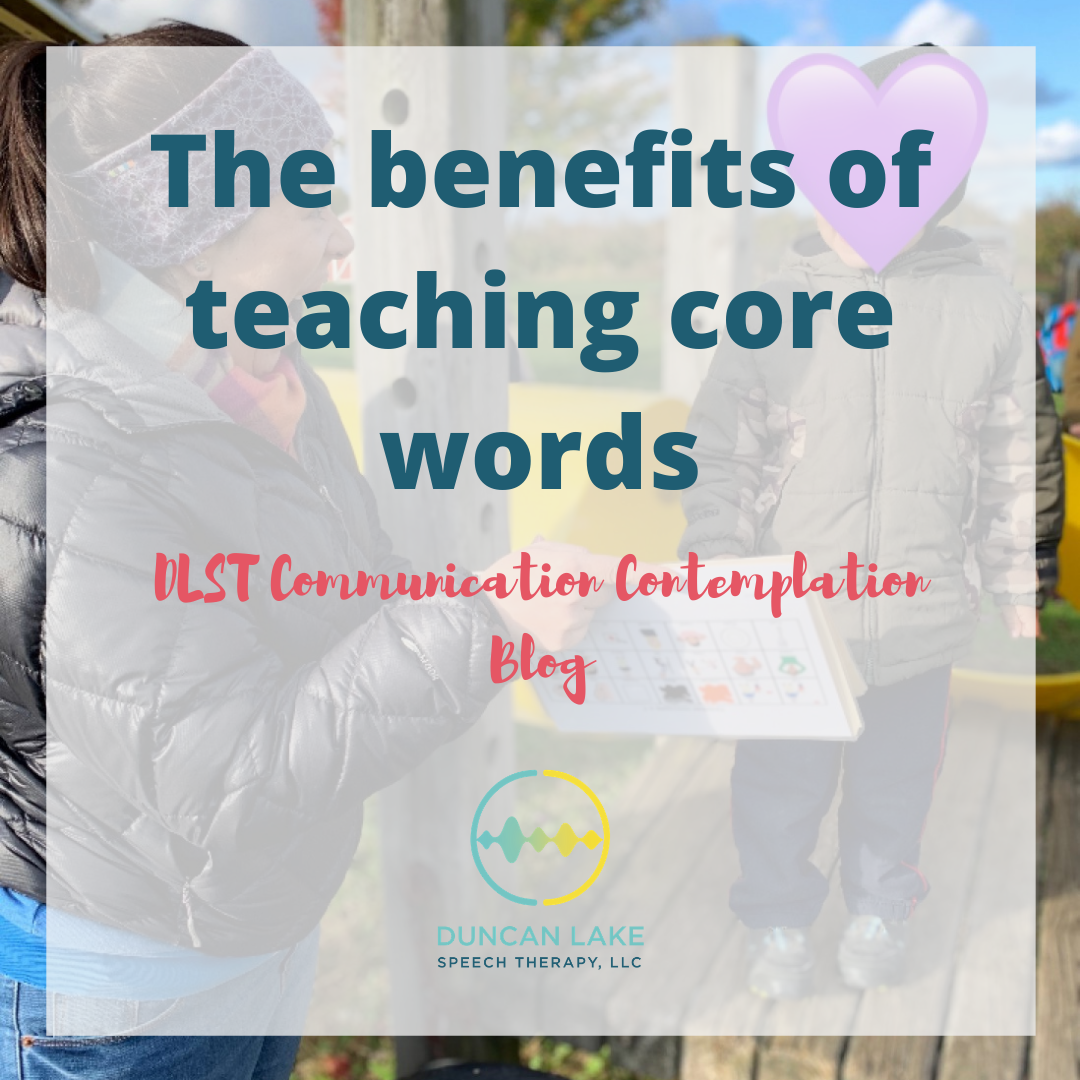I talk a lot about core words on our Facebook and Instagram pages, but what in the world are they and why would anyone teach them?
AssistiveWare defines core words as the “50-400 words that make up the majority of everything we say.” There are a bunch of really interesting studies out there that used various ways to determine what actually makes up these 50-400 words. Some studies involved hooking a recording device up to a group of small children and dictating what the children said to figure out the most frequently used words. Can you imagine!?
Core vocabulary words are exactly that – core, essential words for communication. This lies in contrast with “fringe” words, or words that are very specific to an activity or a child. These aren’t nearly as flexible as core words. Think of things like “pumpkin” or “train.” They might be essential for an activity or two, but they aren’t essential across the board.
Adults can present core vocabulary in a variety of ways. My favorite way to present it to children is through the use of a core board, or a paper/sheet that can be carried around and utilized for communication purposes. I was introduced to the Project Core “36 Location Universal Core Communication Board” while working with the Early Childhood Special Education team in the West Hub of Van Buren ISD! It has 36 of the most highly used words in the English language. There are a billion other core vocabulary lists out there, so do a quick search and see if there is one that fits you, your child, and your family.
SLPs and other special education providers often use core vocabulary or core boards/AAC as a strategy to help children who are language or speech delayed have a way to communicate. However, teaching core vocabulary for any early language learner can be very powerful. What are the benefits of using and modeling core words/core vocabulary to language learners?

I’m a little obsessed with core vocabulary and core boards.
It’s super functional.
If core vocabulary words comprise 80% of what we say in a given day, then, hey, let’s focus on that. If we spend our time and energy focusing on those words, it really opens the door to more effective and INDEPENDENT communication for our children.
Let’s think about this for a moment. If adults model words such as “go” or “like” – words that can be used in a variety of contexts – we set children up to have a more robust form of communication. Take these words and compare them to words like colors or animals. Communication is so much wider with core vocabulary vs. using more specific words.
Less is more.
Have you have ever learned a foreign language? If so, you know that in the beginning, the amount of vocabulary can be insanely daunting. The same holds true for our early language learners. To these children, the entire English language is BRAND NEW. Inundating kiddos who are not-yet verbal with an absolute ton of words and long sentences, etc. can be overwhelming. By focusing on a small group of functional words, we give these children the power of communication without overwhelming them. I’m all about that.
This doesn’t mean all other words go out the window.
What about less frequently used vocabulary? Should we ignore those words? No, not at all. It’s always good to use a robust set of vocabulary, but doing so in conjunction with core words. For instance, if you have a child who, like me, is obsessed with birds, you can model core vocabulary with more “fringe” vocabulary like so:
- More + feather
- Like + feather
- My + feather
- Feather + in (putting into a bag or box)
- Big/little + feather
So, parents, try this out! And other SLPs? Consider using core vocabulary strategies in your practice, whether at school or otherwise. Stay tuned for more posts about how to model core vocabulary in the future!



Recent Comments